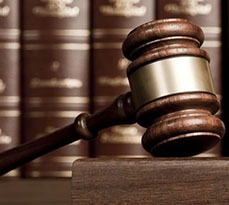A summary of recent research and other initiatives from Cambridge Judge Business School.
Every element of business concerns, in some way, reputation – ranging from a firm’s reliability, to its customer-service profile, to its stock market performance. Many studies by Cambridge Judge Business School faculty have touched on various elements of reputation – sometimes broadly, and other times focusing on specific sectors such as healthcare and legal services.
This is the first in an occasional series in which the Business School highlights our research or other initiatives in certain subject areas. Beyond reputation, we expect in the future to revisit research on climate change, diversity, the global economy, digital transformation, and many other areas.
Reputational spirals

13 April 2021
Public criticism can prompt companies to positively reform their environmental, social and governance (ESG) practices. Yet during times of global crises, such criticism can also trap firms in a downward ESG spiral, wherein negative reputations can constrain access to the very resources needed for reform. In this way, crises often make it hard for companies in a reputational hole to stop digging, and this holds important implications for firms around the world, particularly their need to actively manage corporate reputation during times of global crisis, says a study by Nareuporn Piyasinchai, PhD candidate at Cambridge Judge, and Matthew Grimes, Reader in Organisational Theory & Information Systems.
Turning shame into creativity

13 January 2015
Shame, according to the famous Swiss psychiatrist Carl Jung, is a “soul-eating emotion” – and because some mistakes at work are inevitable, such soul-destroying shame is a common workplace occurrence. Yet research co-authored by Dr Andreas Richter, Reader in Organisational Behaviour at Cambridge Judge Business School, concludes that managers and fellow employees can help channel workplace shame into creativity if the situation is handled skillfully and sensitively. “People naturally want to overcome their workplace shame by demonstrating their value to the organisation, and one way of doing this is to show creativity,” says Andreas. “The study finds that managers can facilitate this by providing an appropriate environment.”
Legal spillover

30 January 2015
The reputation of one practice area in a law firm carries over significantly to the reputation of that firm’s other practices, according to research by Dr Lionel Paolella, University Lecturer in Strategy & Organisation at Cambridge Judge Business School. Thus, a firm’s reputation in the “Tax” category will affect the firm’s reputation in “Mergers & Acquisitions” as it provides a signal for clients regarding the firm’s overall skill and quality of service, shows the research, which looked at more than 500 corporate law firms in New York, London and Paris over a decade.
Hospitals and IT

23 January 2019
Owing to institutional pressures including funding, healthcare practitioners have historically faced big pressures in justifying investment in health information technology – as the payoff is neither certain nor short term. Most research in this area has focused on justifying the value of one-off investments, but a new study co-authored by PhD candidate Stavros Polykarpou and Professor Michael Barrett takes a different approach: rather than looking at the effect of a one-time investment, the study instead focuses on how reputational value is addressed through an ongoing process of justifying health information investments.
The vaccine reputation war

16 March 2021
Dr Thomas Roulet, University Senior Lecturer in Organisation Theory at Cambridge Judge Business School, writes in Forbes magazine about the global vaccine reputation war. He says that audiences seek consistency, so when an actor benefits from a positive reputation the public will give it the benefit of the doubt, and vice-versa – so this sort of bias can cloud judgment on a large scale. “Whatever the position of experts or medical agencies, in countries where the anti-vaccine sentiment is strong, the resistance will only grow stronger, feeding itself on the negative reputational spiral. It will be hard to get rid of such taint – negative reputations tend to be stickier.”
Different audiences, different reputation

17 December 2015
“It takes 20 years to build a reputation and five minutes to ruin it,” says famous investor Warren Buffett. So what do you need to do to safeguard and nurture it? Think differently, says Shaz Ansari, Professor of Strategy & Innovation at Cambridge Judge Business School, but also be aware that your audience will probably talk and listen to each other, so you need to have a co-ordinated plan. “People tend to talk of reputation as if there is one overall reputation among all those concerned, and talk of people as having a high or low reputation as if that is true across all stakeholders,” he says. Instead different groups of people will often have very contrasting views of a company’s reputation and, more importantly, not only are they different but there are also “spillovers” between key groups as they interact over time.


